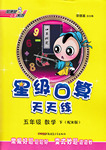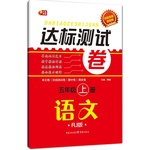题目内容
.I imagine she hardly ever writes to you, .
A.don’t I B.doesn’t she C.does she D.do I
【答案】
C
【解析】

练习册系列答案
 星级口算天天练系列答案
星级口算天天练系列答案 芒果教辅达标测试卷系列答案
芒果教辅达标测试卷系列答案
相关题目
题目内容
.I imagine she hardly ever writes to you, .
A.don’t I B.doesn’t she C.does she D.do I
C
【解析】

 星级口算天天练系列答案
星级口算天天练系列答案 芒果教辅达标测试卷系列答案
芒果教辅达标测试卷系列答案